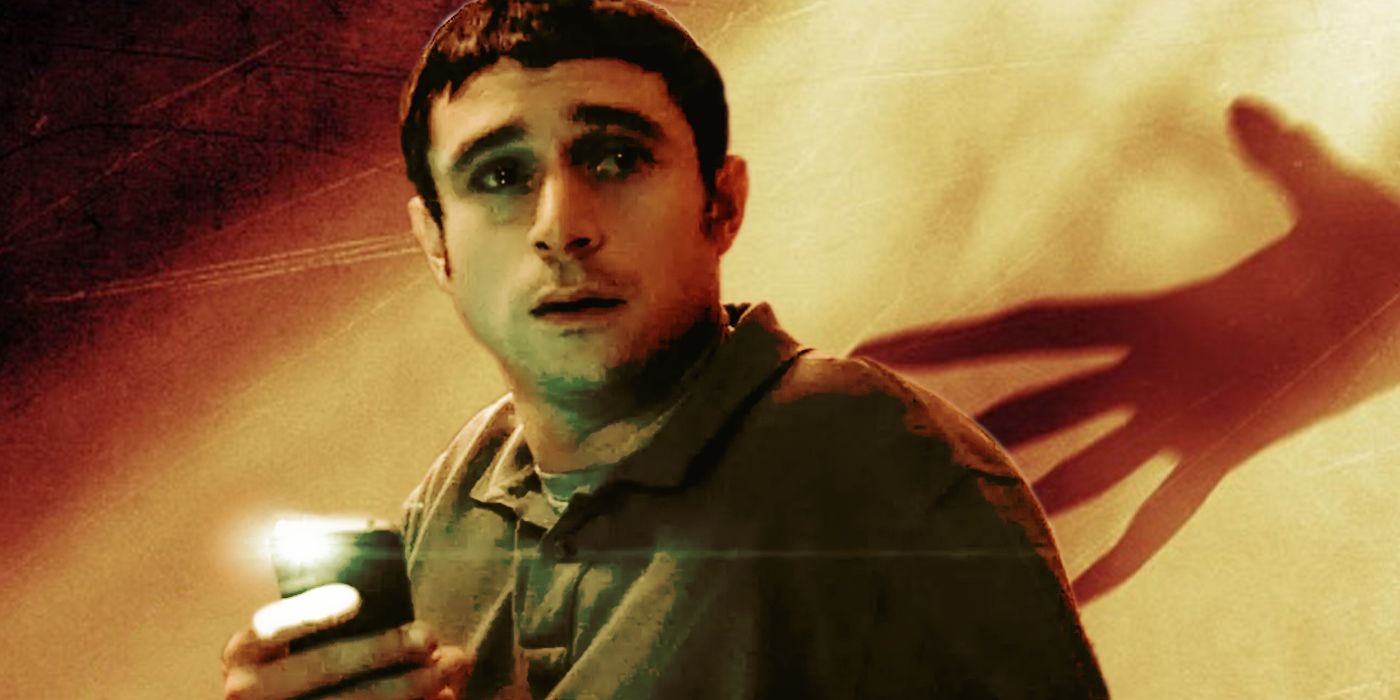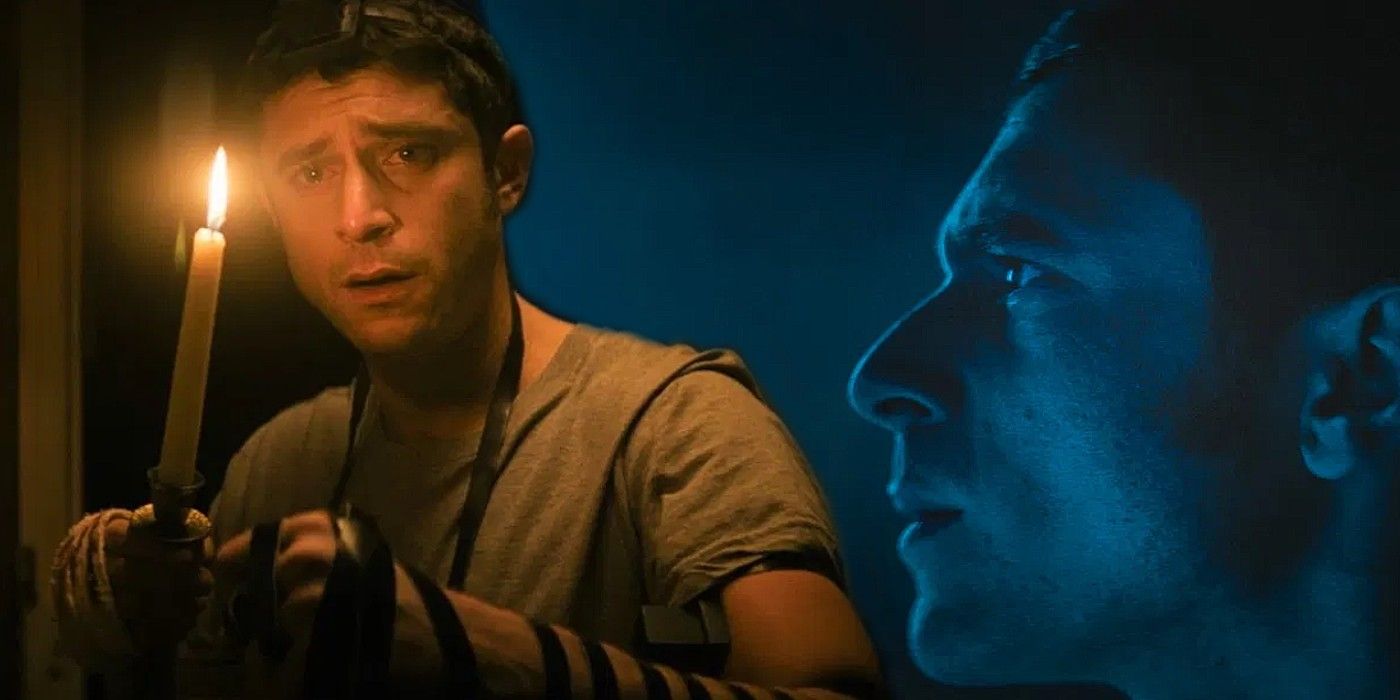The Vigil's Demonic Mazzik Explained (& What It Symbolizes)

Here's The Vigil's Mazzik demon explained and what it symbolizes. The horror genre has no shortage of religious-based horror, though the majority such as The Exorcist, The Omen or more recent fare like The Nun largely draw from Catholicism or Christianity. Horror movies that pull from Judaism are especially rare, though there are notable examples like 2009's The Unborn or The Possession.
The Vigil recently joined that list and follows a young man named Yakov (Dave Davis), who has departed from his Orthodox Jewish community following a tragedy. The cash-strapped Yakov reluctantly agrees to act as "shomer" during the shemira ritual for Mr. Litvak, a recently deceased man in his neighborhood. A shemira is the act of keeping a vigil over the body of the deceased until they're buried, with a shomer acting as guardian to ward off spirits by reading passages from the Torah. As the night unfolds Yakov learns Litvak was a Holocaust survivor who was tormented for most of his life by a demon called the Mazzik.
Unlike the Golem or Dybbuk, the Mazzik is a relatively obscure entity from Jewish mythology. In The Vigil, it manifests as a little-seen demon who torments Yakov throughout the night via visions or hallucinations. Yakov tries to dismiss these events as the lingering aftereffect of his own personal trauma, where he and his younger brother were the victims of an anti-semitic hate crime. They were attacked by a group of men one night and when Yakov was too paralyzed by fear, his brother ran into the road and was killed in a hit and run. The Mazzik is a creature that feeds on grief and guilt and it leeched off Mr. Litvak for decades.

The Vigil reveals Mr. Litvak was forced to execute a fellow concentration camp prisoner, and it was this act that caused the Mazzik to attach itself to him. While the demon is little glimpsed, its head is always turned 180 degrees to symbolize that it's always looking back. It also won't allow Yakov to leave the house and when he tries, the demon makes his body painfully contort and forces him right back. Now Mr. Litvak has passed the demon wants to attach itself to Yakov and feast on the guilt he feels for not protecting his brother. Yakov learns he has to confront the being before dawn and burn its face off if he is to be free of it.
The Mazzik in The Vigil symbolizes how grief and shame can attach themselves to a person and how this can impact their entire lives. Mr. Litvak is revealed to have lived out the rest of his days eaten up by the shame of killing another prisoner, while Yakov's trauma over his brother's death finds him frozen in place in his own life. The movie ends on something of a hopeful note - though it suggests maybe Yakov isn't totally free of the demon's grasp.
No comments: